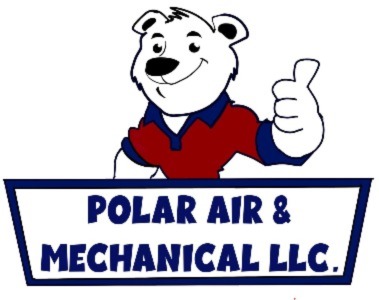
Have you ever performed a double take when you checked your last energy bill? Although high energy bills can be the result of severe weather conditions, repeatedly high bills can often indicate an inefficient HVAC system or your home is using too much energy by other means, like drafty windows or poor insulation.
An easy way to figure out whether your home is wasting energy is by getting a home service specialist to complete a home energy audit, also referred to as a home energy assessment. Keep reading to learn all about home energy audits, including what they are and their key elements.
What Is a Home Energy Audit?
An energy audit is a custom inspection of how much energy your home consumes and whether – and where – your home may be losing or wasting energy. An inspector will go through previous energy bills during an energy audit to determine where energy is being wasted and how much.
The overall goal of an energy audit is to help homeowners save money on their energy bills by identifying energy-efficient updates, which may include exchanging your existing HVAC system, adding new insulation, closing up leaks, or replacing loose windows.
While completing the energy assessment, the auditor carries out an inspection of the outside and inside of your home. The auditor will perform a blower door test on doorways, windows and fireplaces to find out if there are air leaks in your home. They’ll also evaluate your home’s HVAC system, including the ductwork, the water heater, and the insulation in your attic. Exhaustive assessments might also include inspecting your current lighting system.
Benefits of a Home Energy Audit
It can be tough for the average homeowner to know for sure how efficient their home is in comparison to other similar homes in their area. However, local energy companies often supply information about where your home stands in comparison to similar homes and whether it’s more efficient, about average, or inefficient versus your neighbors’ homes. This can be a useful starting point to determine if you need an energy audit completed.
Some of the benefits of a home energy audit include:
Recognizing How Efficient Your Home Is
It’s good to understand how efficient your home is and where you’re using the most energy. For example, if your ducts are leaking, it can lead to a significant increase in your energy bills and additional wear and tear on your HVAC system as it has to stay on longer to properly heat or cool your home.
Making Energy-Efficient Upgrades
An energy audit can reveal where you need to make energy-efficient improvements to conserve energy and decrease utility bills. This may include replacing old weatherstripping or getting a new energy-efficient furnace.
Improving Health and Safety
Allowing air to slip into your home through doors and windows, or as a result of a lack of insulation can cause extra moisture to build up, which can negatively influence your home’s humidity levels or lead to mold. This can cause health conditions, particularly for people suffering from asthma or allergies.
Raising Your Home’s Retail Value
Energy-efficient homes are desired by homebuyers. You can sell your home sooner or for more money by demonstrating to possible buyers that it’s energy efficient.
How to Perform an Energy Audit of Your Home
Although handling an energy audit on your own may not be as detailed as calling a professional, it’ll give you a broad sense of how energy efficient your home is. If you don’t discover any problems during the DIY test, then you potentially don’t need to call in a professional. Try this step-by-step checklist:
- Examine your HVAC system. Broken ducts can lose as much as 20% of conditioned air, resulting in more expensive energy bills and greater wear and tear on HVAC equipment. If you discover leaks, use duct tape to close them. If your HVAC equipment is old and inefficient, upgrading to a new system can save you a substantial amount on your energy bills. In some cases, it might be better to call a reputable HVAC company to inspect your system.
- Look for air leaks. Air leaks on average can increase your energy bills by 10 to 20%. Inside, look for air leaks in areas where there is a draft, like along the edge of flooring and close to baseboards and electrical outlets. Outside, you can inspect for air leaks along the home’s foundation, siding and mortar. Plug, caulk or seal any air leaks to save money.
- Examine insulation. If your home is older, it could mean your insulation is too. If you can see the joists, you likely need more insulation.
- Check ventilation. Make sure that all of your kitchen and bathroom exhaust fans are functioning properly, and check for evidence of rot or moisture.
Contact Polar Air & Mechanical for a Professional Energy Audit
If you want professional help determining how energy efficient your heating and cooling equipment is, call the HVAC professionals at Polar Air & Mechanical today. We’ve proudly supported the residents of Myrtle Beach with quality home services for years. Contact us today to set up an appointment.


